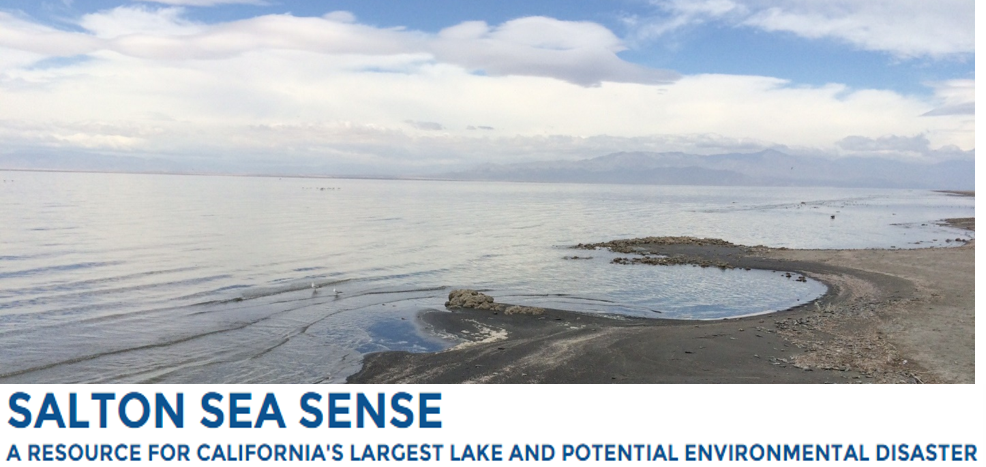The opinion piece published in the November 16th edition of the Highlander, written by the editorial board, noted that the Salton Sea is an opportunity; an opportunity for raising environmental awareness, an opportunity for students and faculty at UCR to collaborate across departments on interdisciplinary problems and an opportunity for the university to uphold its mission of supporting its local communities. The editorial board got that right. The Salton Sea has been teeming with opportunities like these for over 50 years. But the efforts that have been made by faculty and students pertaining to the Salton Sea deserve some of the spotlight.
Professors Kurt Schwabe and Ken Baerenklau, both environmental economists in UCR’s new School of Public Policy, formerly from the Environmental Science department, published an environmental valuation piece in 2008, “Fundamentals of estimating the net benefits of ecosystem preservation: the case of the Salton Sea.” In it, they provided a framework for how the California state legislature could evaluate the several proposed restoration options for the Sea, with the ultimate conclusion “that the benefits of preserving the Salton Sea far exceed the costs,” which was actually a topic of debate less than 10 years ago.
Kawai Tam, Lecturer in the Department of Chemical and Environmental Engineering at UCR, developed and incorporated a modeling project addressing the Salton Sea into one of her (former) classes that many undergraduate engineering students take. The various inflow waters of several sources are coupled with the evaporative losses of the Sea to predict the salinity and surface area levels of Sea into the future, as well as the resultant exposed shoreline. Through this project, students learn a great deal about not only the mathematical tools necessary to evaluate the status of the Sea, but the complexity of the human and environmental health issues at play.
Professor Daniel Schlenk, of the Environmental Toxicology program at UCR, and some of his graduate students, have been studying the Salton Sea for over fifteen years. One study from 2004 evaluated the presence of more than 70 pesticide and industrial chemical compounds in the tissues of fish and sediments in the Salton Sea. More recently, he and his post-doctoral researcher, Varenka Lorenzi, published an article describing the combined effects of temperature and salinity extremes on the tilapia species that inhabit the Salton Sea.
Most recently, the Salton Sea Sense blog (www.SaltonSeaSense.com) has been an effort by nine PhD students to “elevate the Salton Sea, and the issues surrounding it, in the minds of community members (UCR students included), policymakers, and industry leaders, while providing a resource for informed decision-making regarding the future of the Sea and its effects in Southern California and beyond.” Made up of engineers, chemists, toxicologists and environmental scientists, this group founded the website in March 2015, and have been publishing on it regularly. Topics range from general scientific inquiries (“Why is the Salton Sea so salty?”) to debunking common misconceptions (“Was the Sea man-made? Can’t we let it dry up?”). The site’s most popular piece, written by third-year chemistry PhD student, Melissa Morgan, explains that “Yes,” you can swim in the Salton Sea. Beyond general knowledge and explanations, the authors have written several pieces discussing how individuals can contribute to saving the Sea. Letting elected officials know that the Salton Sea is a priority is the simplest way to pitch in, and the blog explains how best to go about that. Becoming a citizen scientist with groups such as the National Audubon Society is a great way to learn about the local ecosystem and contribute to its preservation in a tangible way. Finally, Salton Sea Sense serves as a news source of recent and ongoing activity at the Sea. In early November, stakeholders joined together to break ground on a new habitat restoration project, and the authors of the blog were present to participate and report back on the exciting developments.
The calls to action in the former Highlander editorial are admirable, but lack specific guidance or follow-through. The Salton Sea Sense blog allows for UCR students, faculty and staff to learn about the current issues. The site fosters conversations about solutions, solicits community involvement and empowers readers to take action.









